G20 and beyond: the rise of the Asian Impact Leaders

As the G20 leaders' summit comes to Indonesia this year and then to India in 2023, AVPN – the largest network of social investors in Asia – is launching an initiative to amplify the voices of some of the region’s most ambitious social investors, innovators and policymakers. It’s time for them to take their place on the global stage and demonstrate their solutions to the world’s most urgent problems, says AVPN – in the first of our new series charting the rise of the Asian Impact Leaders.
Citizens of India and Pakistan right now are enduring an unexpected and deadly heatwave with record-setting temperatures soaring beyond 47 degrees celsius in some places. Last year, Super Typhoon Rai killed more than 400 people in the Philippines and Vietnam. Around 180m people in China are currently in lockdown to halt the spread of Covid-19. By March 2022, 2.9m deaths had been attributed to Covid-19 across the Asia-Pacific – nearly half of the official global total. And the conflict in Ukraine – although a vast distance away – is threatening to destabilise Asian-Pacific economies, with higher inflation and rising costs of food expected to disproportionately hit the pockets of the poorest people.
It’s clear across the Asia-Pacific that climate change, the pandemic and geopolitical tensions are having a devastating impact. Yet in some quarters there’s a real sense of optimism. In an interview with Pioneers Post, Naina Subberwal Batra, the CEO of social investor network AVPN points out that Asia holds unprecedented amounts of wealth as well as people who are committed to finding solutions to the challenges that the region – and the world – are facing.
“There are significant social challenges in Asia Pacific, but also a huge economic opportunity – the region holds 42% of global wealth,” she says. “So I feel that this is a really exciting time for leaders in Asia to really step up and show their initiative. They can get involved in the most complex problems, but they also have access to some of the world’s biggest resources.”
This is why, she tells us, the AVPN is launching its Asian Impact Leaders Network, co-created with the Rockefeller Foundation, which aims to amplify the voices of some of the most impressive problem-solvers from the Asia-Pacific. And it’s a key moment to do this, she says, because this year Indonesia holds the presidency of the influential G20 meeting of world heads of state, and in 2023 the G20 moves to India.

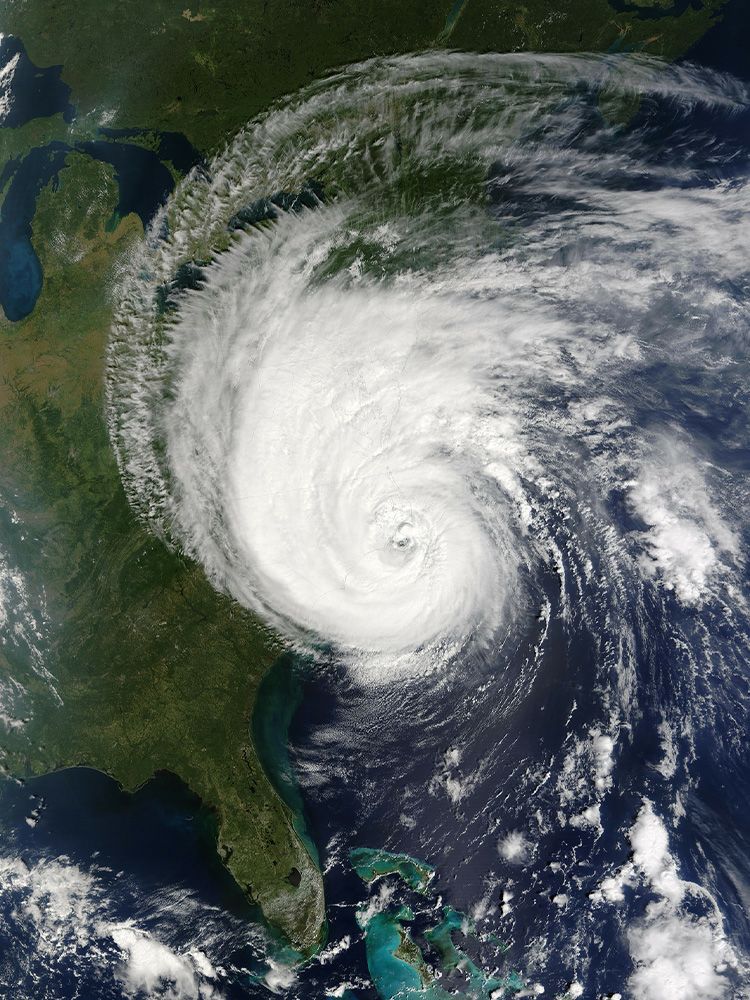

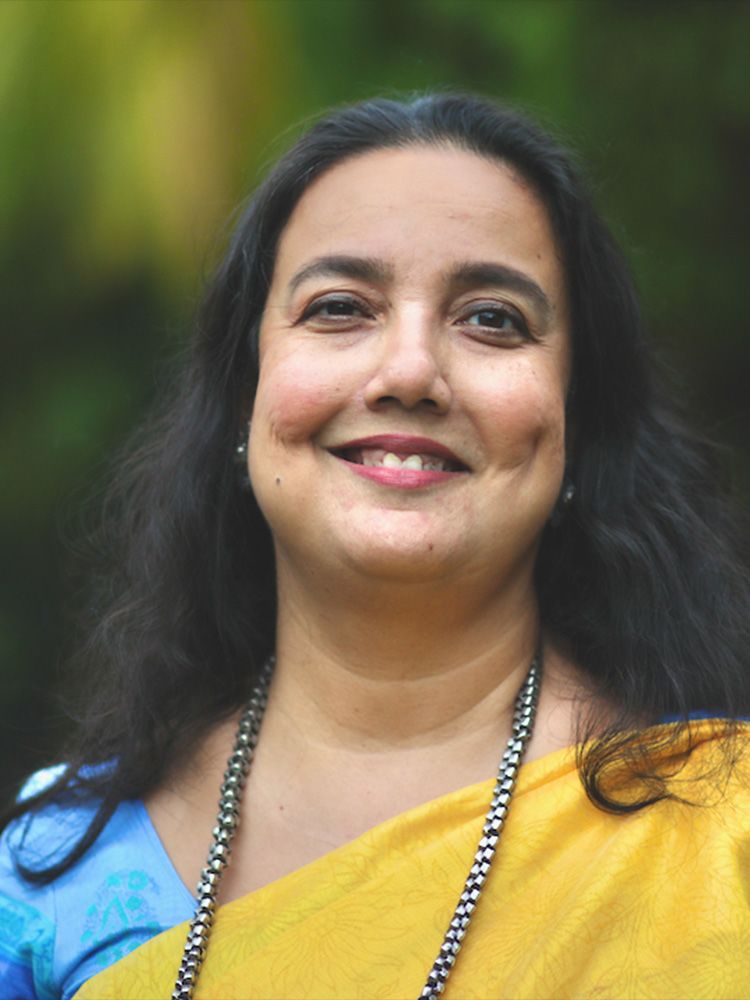
Naina Subberwal Batra: "I feel this is a really exciting time for leaders in Asia to really step up and show their initiative"
Naina Subberwal Batra: "I feel this is a really exciting time for leaders in Asia to really step up and show their initiative"
The SDGs: moving further out of reach
The 17 UN Sustainable Development Goals outline a shared blueprint for peace and prosperity for people and the planet with the ambition that they will be achieved by 2030. They influence the approach of NGOs, governments and entrepreneurs all over the world, but their success seems to be moving ever further out of reach. According to the UN’s Economic and Social Commission for Asia and the Pacific (UNESCAP), at the current rate of progress, they won’t be achieved in the region until 2065.
Estimated year to achieve the SDGs at the current pace in Asia and the Pacific, 2017-2021
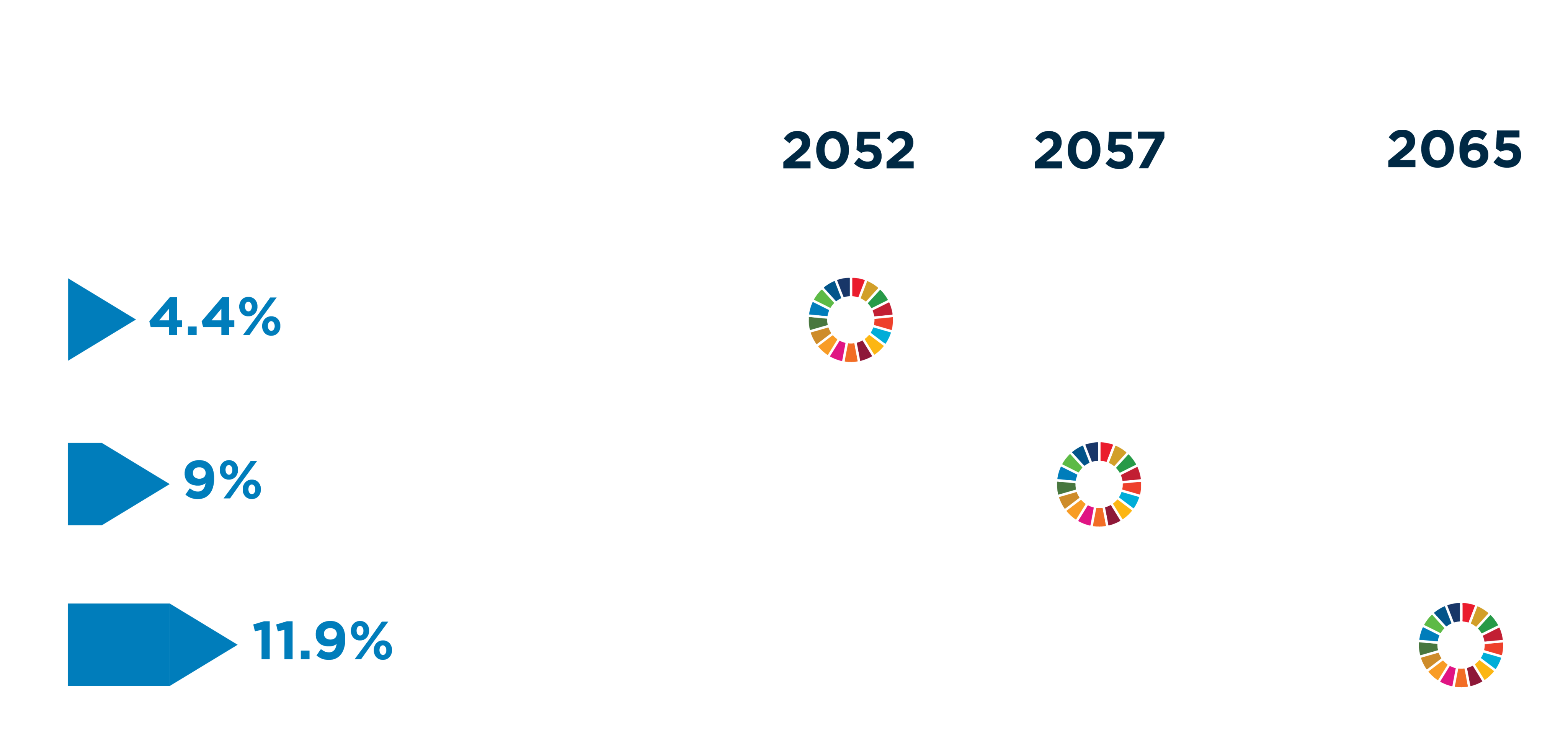
Source: Asia and the Pacific Progress Report 2022, UNESCAP
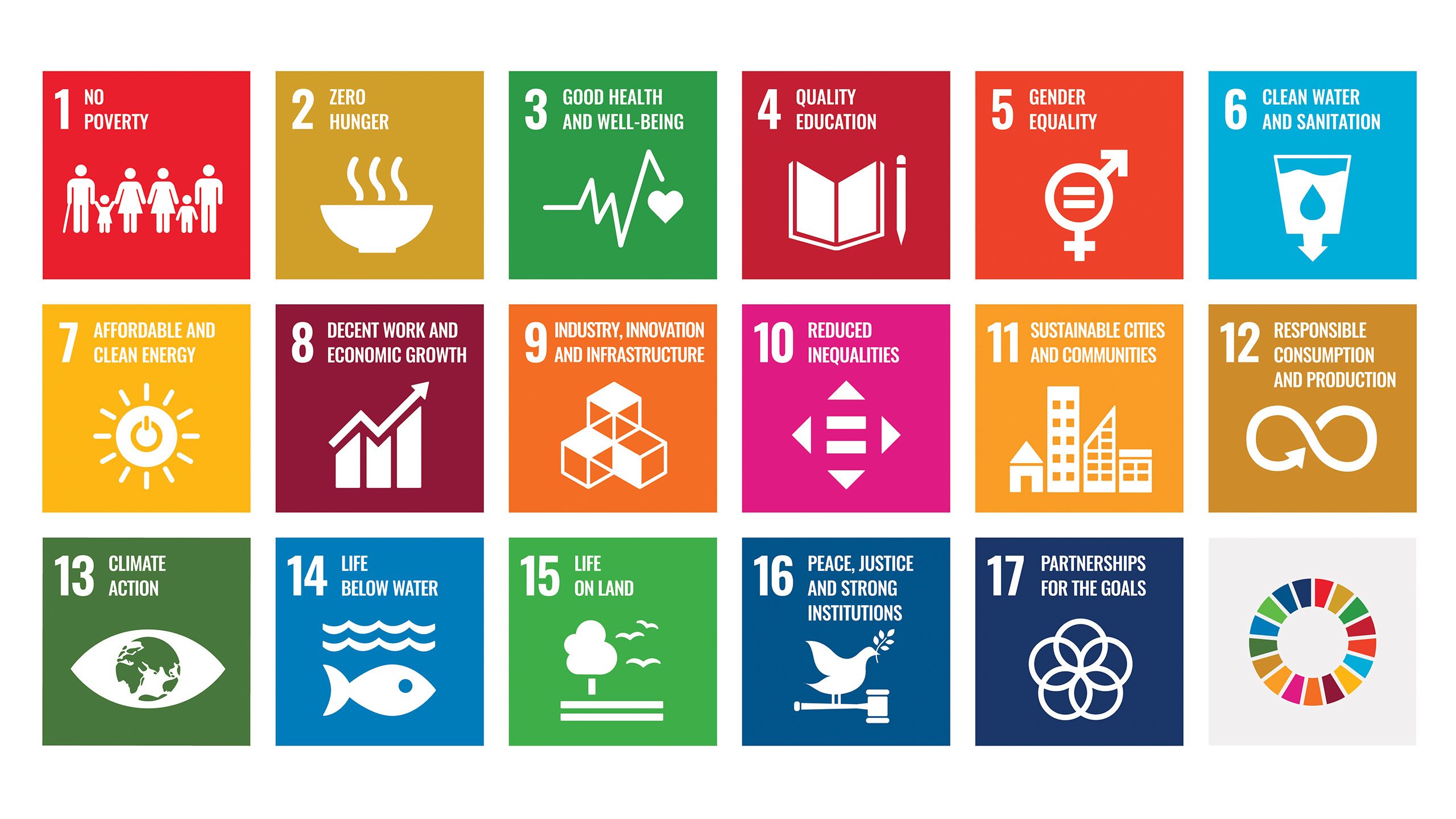
However, there’s no shortage of resources that could be put to work to address the SDGs in the Asia-Pacific region. With 60% of the world’s population, it also holds a significant slice of total global wealth, with private banks rushing to open new offices to serve the growing number of billionaires.
What’s more, India has some of the world’s fastest growing cities and Indonesia is expected to become the fourth largest economy in the world by 2030.
There is also a vast market gap in the region in booming sectors such as renewable energy and healthcare which, according to AVPN, creates an unparalleled opportunity for social investors in Asia to step forward.
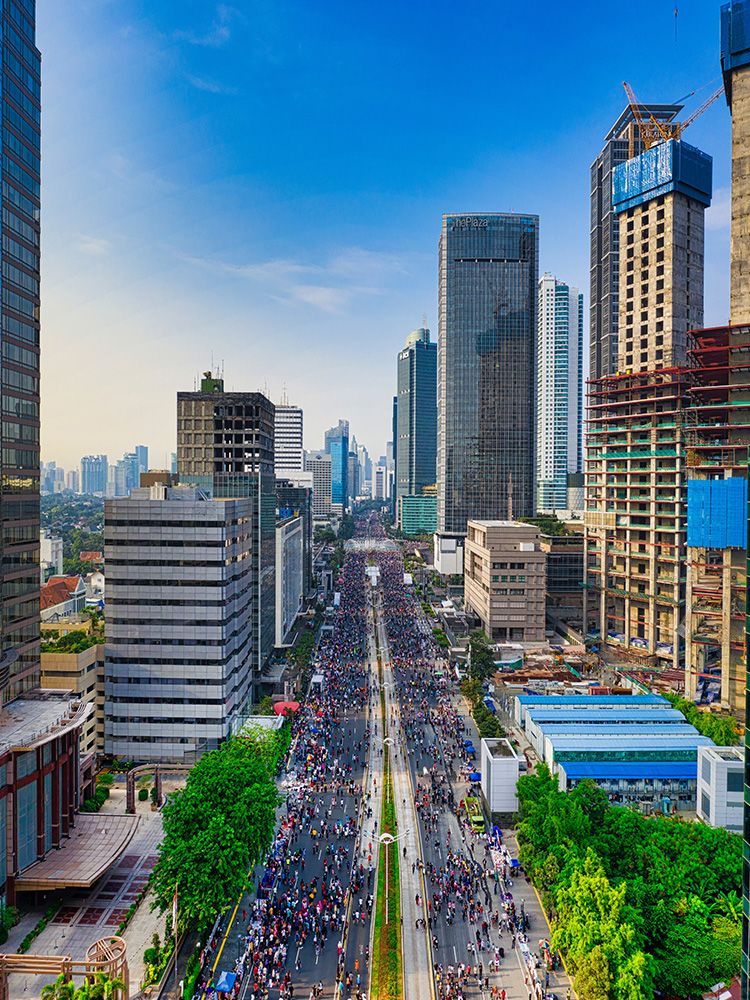
Indonesia is set to become the world’s fourth largest economy by 2030
Indonesia is set to become the world’s fourth largest economy by 2030
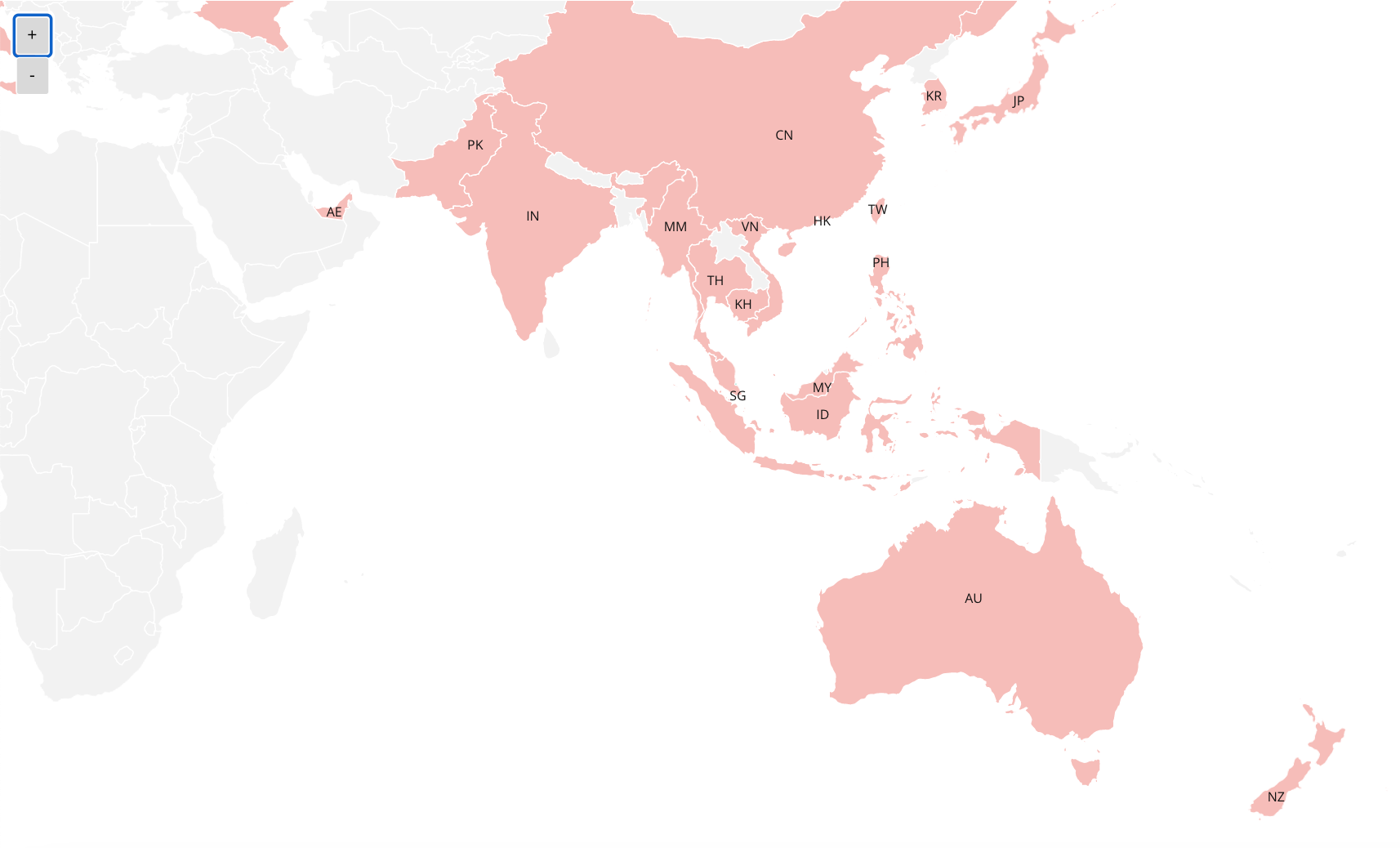
Asia-Pacific: full of potential
4.3bn
Asia-Pacific is home to 60% of the world’s population, 4.3bn people
source
$218tn
Asia-Pacific holds 42% of total global wealth at $218tn
source
4th
Indonesia is expected to become the fourth largest economy in the world by 2030
source
2nd
Asia is set to overtake Europe as the world’s second largest wealth hub after the US by 2026
source
41%
More than one-third of the world’s billionaires are based in Asia-Pacific and this is set to rise to 41% by 2026
source
1st
The total wealth of ultra high net worth individuals is higher in Asia-Pacific than any other region
source
So, according to Subberwal Batra, this rapid economic development coinciding with increasing inequality and multidimensional poverty, creates a prime landscape for Asian leaders to step up to help build a just, green and resilient future.
Why is it an exciting time right now for Asian impact leaders?
Why is it an exciting time right now for Asian impact leaders?

Aiming to move more capital towards impact across Asia
Originally known by its full title of the Asian Venture Philanthropy Network, but now simply referred to as AVPN, the Singapore-based network brings together more than 600 members from 33 countries. What unites them is a commitment to social investment across the whole continuum of, as CEO Naina Subberwal Batra puts it, “any kind of capital that flows towards impact” – from philanthropy to ESG investment.
Members include foundations, family offices, corporations and financial institutions, impact funds, government entities, NGOs, universities, incubators, accelerators and others from across the Asia-Pacific region.
The AVPN is a sister organisation of Europe’s EVPA, Latimpacto in Latin America and the Caribbean, and AVPA in Africa.
Read more about AVPN in our Pioneer Interview with Naina Subberwal Batra

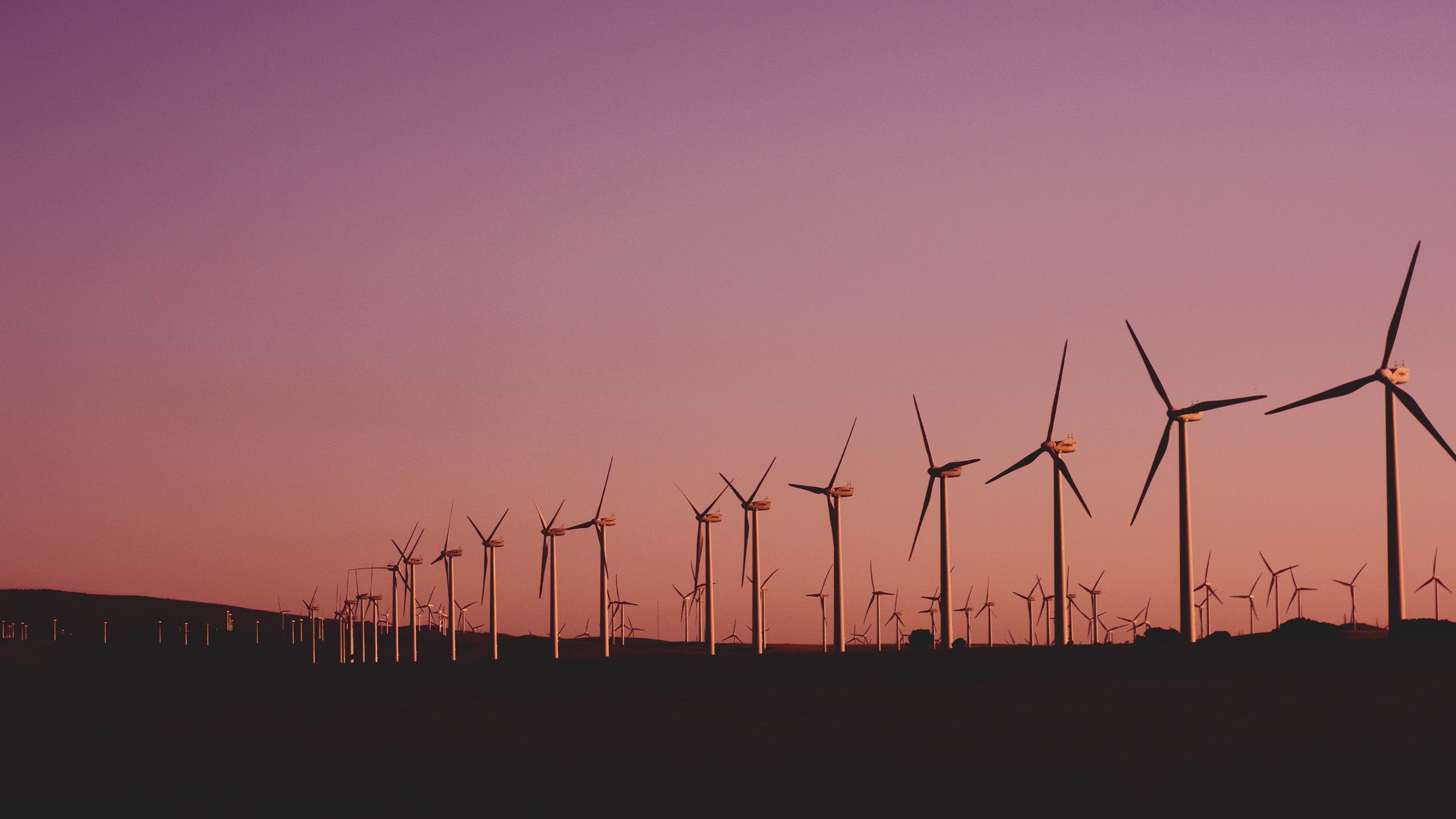

The aim of the new Asian Impact Leaders Network is to bring together leaders who are at the forefront of driving change at a systems level, says Tristan Ace, AVPN’s chief product officer. It’s about brokering relationships, building alliances and developing trust between people from across Asia Pacific against the background of the “wider geopolitical context of division”. The group will be “solutions-focused and ambitious”, he says.
As a neutral body, AVPN is well placed to bring these people together, says Subberwal Batra, “to further both cross-border and cross-sector collaboration as we work towards achieving equitable growth and development across Asia Pacific”.
At the heart of the network is the view that it’s time for Asian leaders to take their place on the world stage. Deepali Khanna, vice president, Asia, at the Rockefeller Foundation, points out that the pandemic revealed the huge inequalities that exist in the world at the same time as showing the importance of collaboration and leadership. With the G20 taking place in Indonesia and then India this, she says, is “a rare, opportune moment” to bring together “impactful leaders” from Asia.
Subberwal Batra adds that not everything that the West has done to tackle climate change and other challenges has worked out that well. “Usually the framework is developed in the West and then it’s brought to Asia,” she says. “And we expect Asian leaders to come on board…Some of the models and frameworks that have been developed have not proven to be that successful.
“So I think it’s time to look at models developed in the Global South that are more in tune with what’s happening at the grassroots and to see if these models will be more effective than the ones that have come in the past.” She points out that Indonesia has great expertise in reaching isolated communities that are dispersed across the huge archipelago. And that China has raised more than 700m people out of absolute poverty. “We are trying to take some of these success stories and put them onto a global stage,” she says.
The network will begin to take shape over the coming months, launching with a small cohort of around a dozen people, with the aim for it to grow in number and influence in the coming years. It’s a long-term project, emphasises AVPN with the leaders focusing their attention initially on communicating both the urgency and the potential solutions to critical issues such as climate change, access to healthcare, achieving gender equality and economic opportunities for young people.
And while the Asian Impact Leaders Network is a distinct community within the AVPN, it isn’t separate, points out Ace. The leaders will act as ambassadors for AVPN as well as working closely with other AVPN members and alongside AVPN events and programmes. What’s more, points out Khanna, the leaders will take their own decisions about how they take forward the network.
The network’s first big challenge is to make an impact at the G20 summit in Bali in November. The founding members’ work towards this will begin when they meet in June at AVPN’s 2022 Global Conference where they will begin to explore how to develop the sustainable finance market. This, points out Ace, is a huge opportunity to crowd in Asian capital to address the SDGs.
Khanna adds that the leaders also need to hold the G20 accountable over the next two years. “What do we want to see in India in 2023 that we articulated in Indonesia in 2022?”
“Using this platform of the G20 will really propel these leaders to the front and centre,” says Subberwal Batra. “This is an opportunity to bring leadership voices that have historically been left out of the global conversation to the table.”
Khanna agrees: “We see our role as to create that platform where people have the opportunity to think bold and big for Asia.”
Why is developing a cohort of Asian leaders important?
Why is developing a cohort of Asian leaders important?
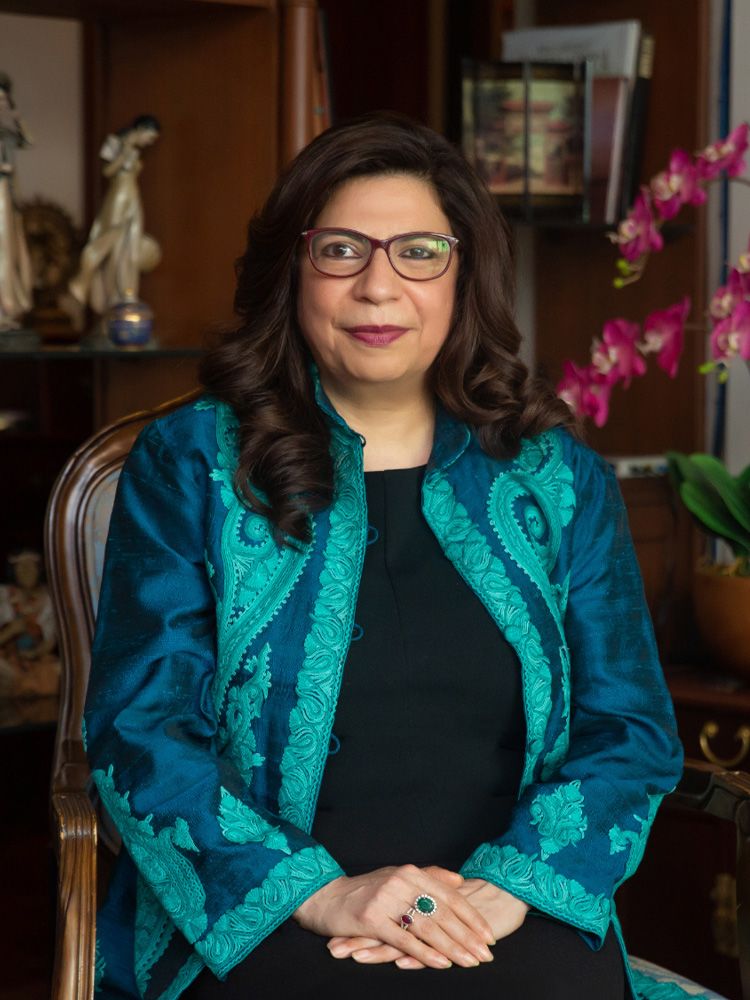
Deepali Khanna: "The G20 is a rare, opportune moment to bring together impactful leaders from Asia"
Deepali Khanna: "The G20 is a rare, opportune moment to bring together impactful leaders from Asia"
“I am excited about working with peers to drive forward sustainable development”
Rupa Chanda
United Nations Economic and Social Commission for Asia and the Pacific
How Asian impact leaders can build trust between governments and businesses

For developing countries like India and others in the wider Asia Pacific region, the key issue, not only in the context of recovery from the pandemic but also from a longer-term perspective, is the need to generate gainful, quality employment which creates opportunities in an inclusive manner and to have an ecosystem that facilitates such growth.
This requires governments to invest in skills and infrastructure, in creating a conducive regulatory environment, and more generally to act as a facilitator for the private sector.
The private sector, for its part, needs to look beyond profits to embrace the principles of inclusivity, sustainability and social responsibility. It must seize emerging opportunities and be willing to risk adopting new models, new technologies and ways of doing business.
This is where leaders in the region can aid the process by sensitising governments and businesses, by sharing knowledge and disseminating good practices and success stories, through capacity-building activities, and by partnering with governments to help the implementation of relevant initiatives and programmes. Leaders can help steer governments and businesses towards identifying new growth opportunities and building new perspectives.
The main challenge I see is that governments and businesses often do not work as partners but rather see the other as potentially in conflict with their objectives. There is lack of trust and scepticism between the two. This needs to change, especially in a world where technological changes are rapidly transforming the future of work and constantly throwing up new regulatory and societal challenges. Unless the two work more closely together, governments will find it difficult to understand and keep pace with the changing dynamics and to evolve their policies and regulations while the private sector may lose sight of their wider social and environmental responsibilities.
I hope that groups such as the Asian Impact Leaders Network can help bridge this gap between the public and private sectors by showcasing successes and responsible business practices, and that they can provide thought leadership to help shape policies and legislation.
I am excited about working with peers to learn more about what has worked and what has not worked in the region, to understand the factors that have defined success or failure, and to learn from these experiences in our work going forward.

Rupa Chanda is director, trade, investment and innovation division, at the United Nations Economic and Social Commission for Asia and the Pacific

The Asian Impact Leaders Network founding members
- Abha Thorat-Shah, executive director (social finance), British Asian Trust, UK
- Arunabha Ghosh, founder-CEO, Council on Energy, Environment and Water (CEEW), India
- Professor Bambang Brodjonegoro, University of Indonesia, Indonesia
- Chea Serey, assistant governor and director general, Central Banking of the National Bank of Cambodia, Cambodia
- Chung Kyung Sun, chief imagination officer and founder, Root Impact, Singapore
- Gauri Singh, Deputy director general, International Renewable Energy Agency (IRENA), UAE
- Ibu Vivi Yulaswati, senior adviser, Ministry of National Development Planning, Indonesia
- Lucy Chow, founder and director, Women’s Angel Investor Network (WAIN), UAE
- Rupa Chanda, director, trade, investment and innovation division, UNESCAP, Thailand
- Dr Damayanti Buchori, IPB University, Indonesia
- Ng Boon Heong, CEO, Temasek Foundation, Singapore
- Preeti Sudan, former health secretary of India


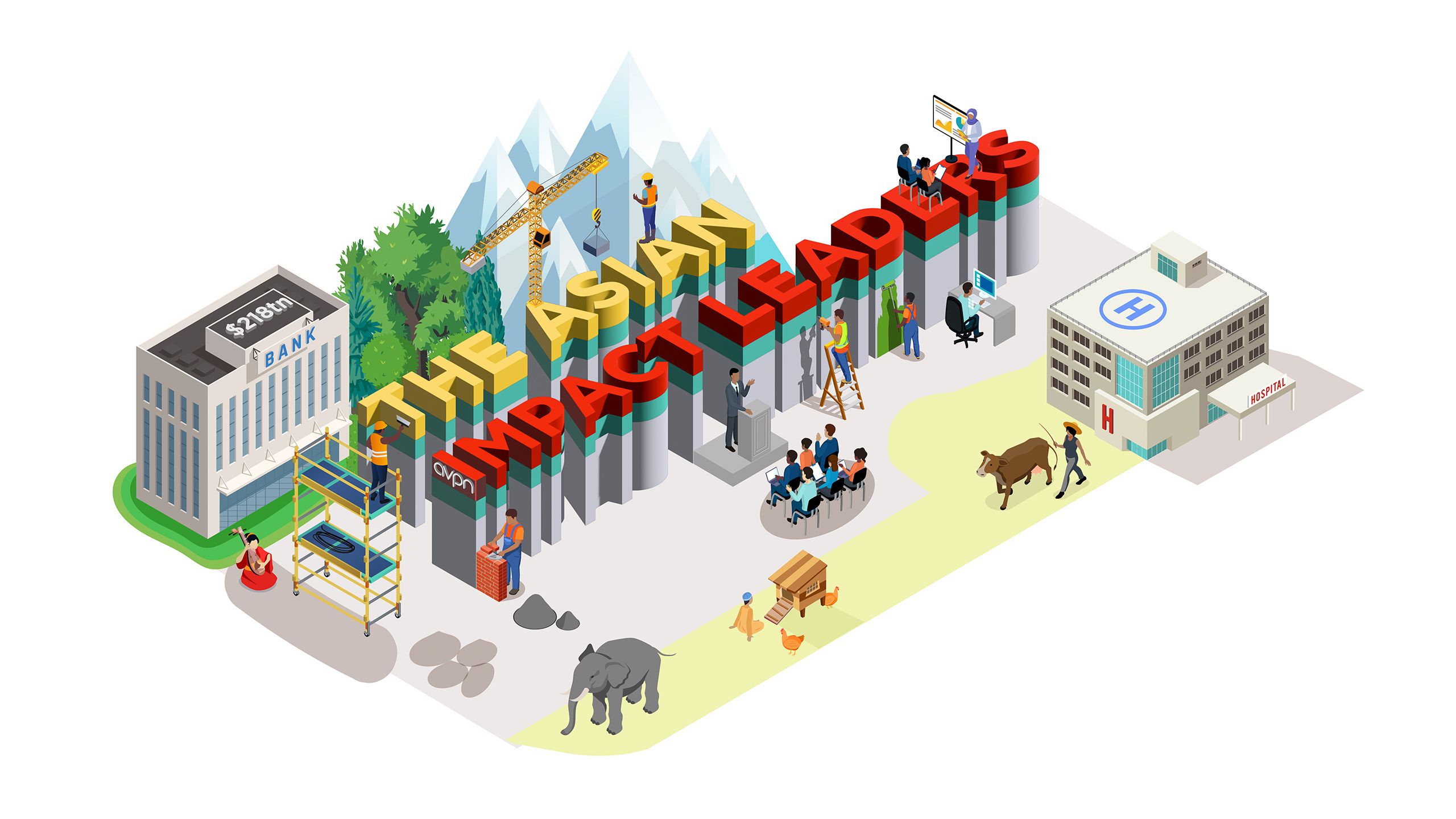
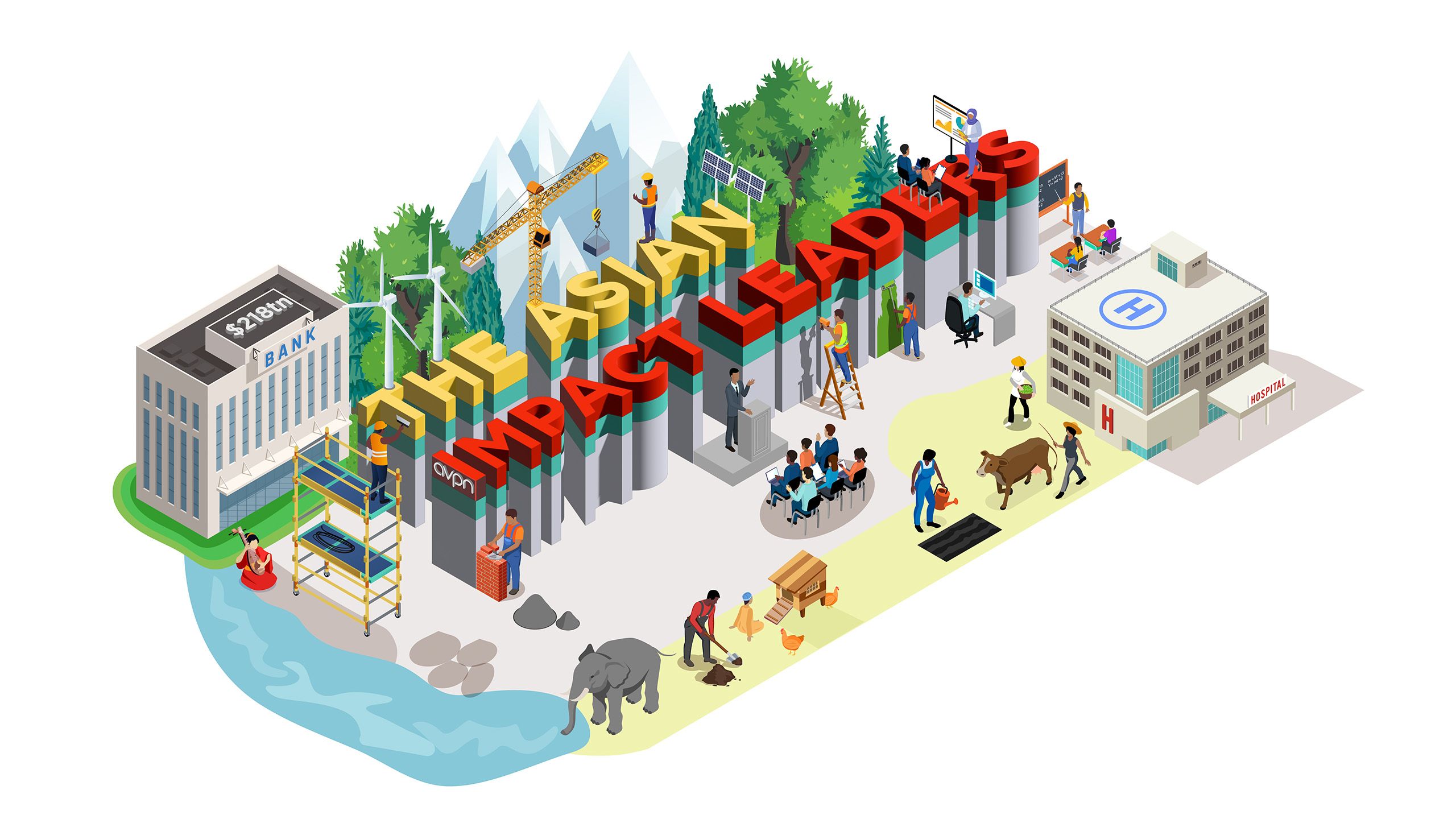
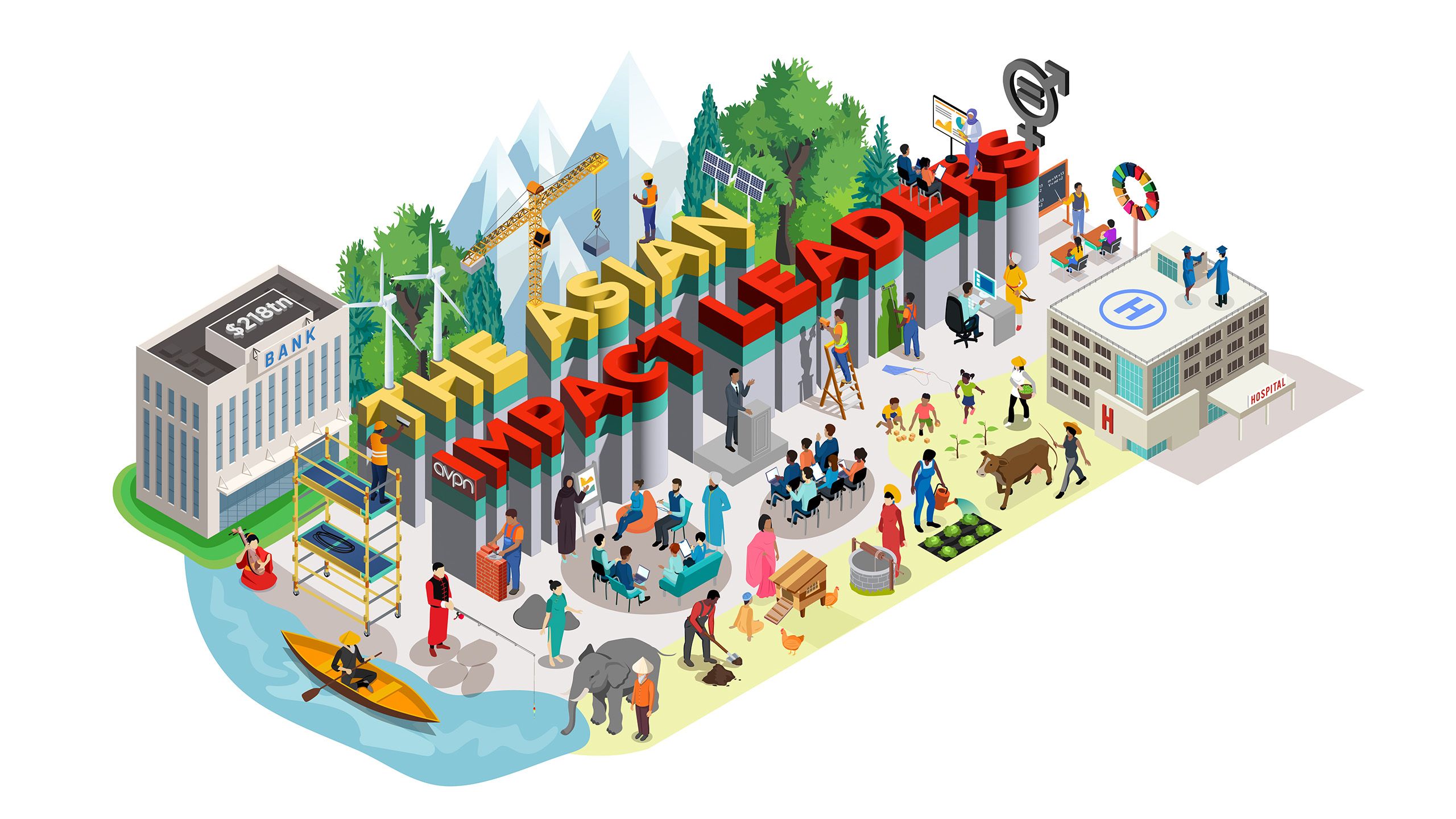
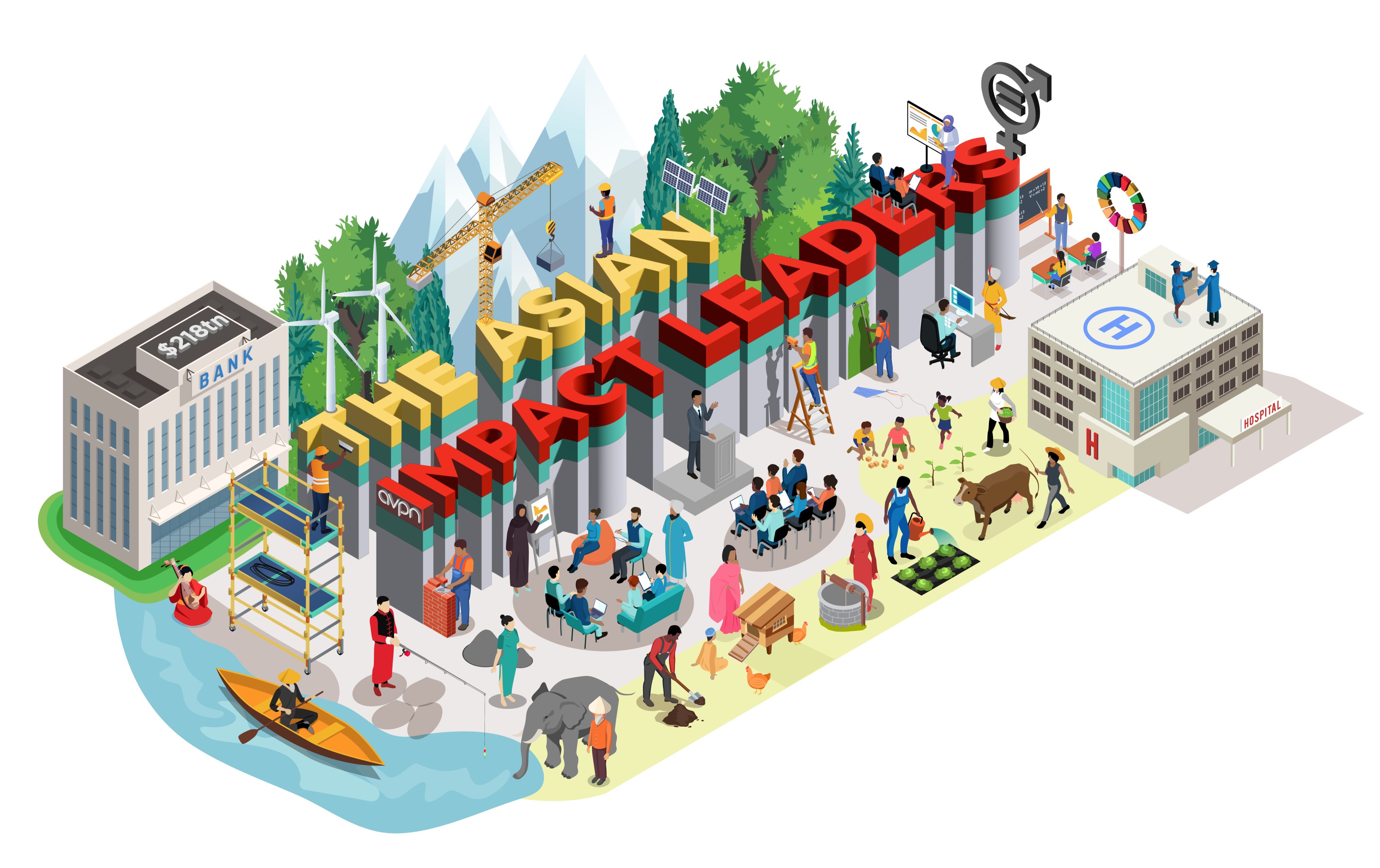
This immersive feature was produced by Pioneers Post in partnership with AVPN. Stay tuned for more articles exploring Asian leaders’ work to build a sustainable, just, inclusive and resilient future.
Get in touch if you'd like to tell your story.
J O I N T H E I M P A C T P I O N E E R S
SUPPORT OUR IMPACT JOURNALISM
As a social enterprise ourselves, we’re committed to supporting you with independent, honest and insightful journalism – through good times and bad.
But quality journalism doesn’t come for free – so we need your support!
By becoming a fully paid-up Pioneers Post subscriber, you will help our mission to connect and sustain a growing global network of impact pioneers, on a mission to change the world for good. You will also gain access to our ‘Pioneers Post Impact Library’ – with hundreds of stories, videos and podcasts sharing insights from leading investors, entrepreneurs, philanthropists, innovators and policymakers in the impact space.

